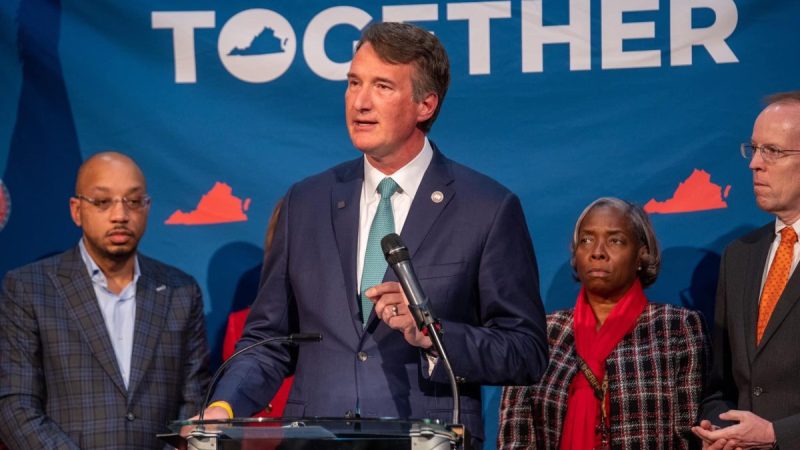Virginia’s Air Pollution Control Board voted Wednesday to remove Virginia from the Regional Greenhouse Gas Initiative, keeping Republican Governor Glenn Youngkin’s promise to eliminate the related carbon tax that has been imposed on electricity ratepayers under RGGI since January 2021.
It was a step long advocated by the Thomas Jefferson Institute for Public Policy, which opposed the push by two previous Democratic governors to enter the regional cap and tax compact with northeastern states. Governor Youngkin is following a path to repealsuggested by the Jefferson Institute soon after his election. The Jefferson Institute issued a white paper on the topic in 2019, beginning its efforts to keep Virginia out of the compact.
The bad news is the tax itself won’t disappear until at the earliest September 2024. It is collected from customers on a delayed basis. Dominion Energy Virginia imposed and then removed a special RGGI surcharge on its bills. The surcharge is likely to be imposed again as of September 1 of this year and run 12 more months. A State Corporation Commission hearing examiner has recommended approval of Dominion’s petition.
The new surcharge is still being calculated, as there remains some dispute over what the full costs are. The warmer than normal winter reduced electricity demand and required fewer RGGI credits. The surcharge should settle somewhere above $4 per 1,000 kilowatt hours of usage. In effect, as the hearing examiner notes, Dominion is seeking to collect 17 months of RGGI allowance costs in just 12 months.
As the dominant utility, with a remaining fleet of some coal and many natural gas generators, Dominion and its customers have been the most impacted by Virginia joining RGGI. Several independent power plants also must buy RGGI allowances and pass the cost on to their customers, as well, and to the extent that power flows to Virginia electricity customers, that also comes out of their pockets.
The other large utility, Appalachian Power, has little to no generation within the state and buys few if any RGGI credits. Virginia’s electric coops share ownership of a major Southside Virginia coal plant with Dominion, so the coops do buy significant RGGI credits.
The Air Board’s decision to withdraw from RGGI won’t be implemented until the end of the current three-year RGGI contract period this coming December. Supporters of the regional cap and tax program are expected to sue, arguing that only the General Assembly has the authority to withdraw from the interstate compact. The lawsuit could also interfere with the Youngkin timetable to withdraw as of the end of 2023, and if successful expect the surcharge to remain into the future, too.
Former Governor Terry McAuliffe (D) began a regulatory process to join RGGI, with no specific vote of the General Assembly. In fact, General Assembly Democrats strongly objected when Republican legislators passed bills to insist Assembly approval was needed. Those bills died, and now the parties have reversed stances. It is the Democrats insisting this is a legislative prerogative.
The legislation they passed, and Governor Ralph Northam signed in 2020, however, states the Department of Environmental Quality and Air Board are “authorized” to move forward with joining RGGI. The wording does not include a clear mandate, nor does it insist the regulation could not be repealed in the future. In the normal course of business, regulations come and go.
Democrats were quick with their condemnation of the Air Board vote, including a demonstration outside the meeting followed by a huge wave of social media. Most of the messages followed what is now the usual tactic of blaming any adverse weather condition on supposed “climate change,” in this case the haze floating over much of the United States from Canadian forest fires. There is zero evidence fires have become more common as temperatures and greenhouse gases have crept up in recent decades.
But ironically, just as it was a warmer than expected winter, the particulates from the fires should cool temperatures within the RGGI zone for a while, again reducing the demand for electricity and RGGI allowances.
Since the tax will still be on electricity bills and very visible, and the court challenge will probably be underway, Virginia’s participation in RGGI will likely remain a topic of debate for the November elections. Clearly Democrats think it is highly popular, but polling continues to indicate most American’s have little tolerance for higher prices to fight “climate change.” Many Democrats disliked RGGI in a poll conducted by Mason-Dixon polling for the Jefferson Institute.
The Air Board was told the public comments it received, when repetitive mass emails were discounted, represented about a three-to-one ratio is favor of retaining membership. Much of the support centered on the ways the money is being spent, partly for flood protection projects and partly on home energy efficiency repairs.
A similar legal battle over RGGI is still raging in Pennsylvania, which has more than twice as many facilities that would need to start paying the carbon tax to operate. Those are among the fossil fuel plants which feed into the PJM Interconnection regional electricity market, but at a lower price than Dominion’s plants due to the RGGI tax. The disconnect between RGGI’s footprint and PJM’s is one reason RGGI has been ineffective at lowering total carbon emissions overall.
Worldwide, despite 40 years of feverish efforts to reduce the use of fossil fuels, the CO2 in the atmosphere keeps rising, even as U.S. emissions have been dropping for decades, long before RGGI came to Virginia.

A version of this commentary originally appeared June 8, 2023 in the online Bacon’s Rebellion.
Steve Haner is Senior Fellow with the Thomas Jefferson Institute for Public Policy. He may be reached at steve@thomasjeffersoninst.org.






